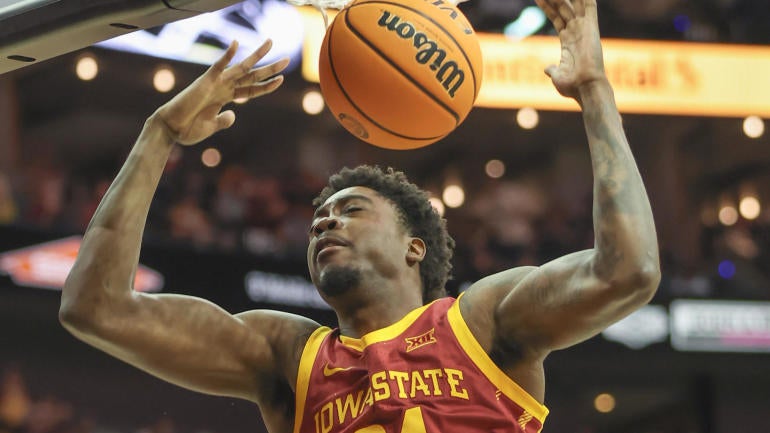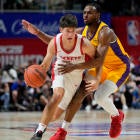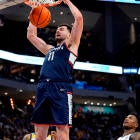
There have been 11 upsets by No. 15 seeds in the history of the NCAA Tournament, with seven of those coming in the past 11 seasons. Coincidentally, a No. 15 seed has pulled off a first-round upset in three consecutive seasons and last year's victim, Arizona, again finds itself as a No. 2 seed in the 2024 NCAA Tournament.
Moreover, a Saint Peter's program that was the Cinderella story of the 2022 NCAA Tournament when it reached the Elite Eight has a chance to repeat history, as it takes another No. 15 seed into this year's Big Dance against No. 2-seed Tennessee.
Will we see a No. 15 seed prevail for the fourth consecutive season? Here is a breakdown of the No. 2 vs. the No. 15 seeds, with rankings for the most likely upset.
Get every pick, every play, every upset and fill out your bracket with our help! Visit SportsLine now to see which teams will make and break your bracket, and see who will cut down the nets, all from the model that nailed a whopping 20 first-round upsets by double-digit seeds.
15 vs. 2 upset rankings
Ordered from least likely to most likely.
4. South Dakota State over Iowa State
Many basketball observers suggested the Cyclones should have been awarded a No. 1 seed following a dynamic run through the Big 12 Tournament that saw them cut down the nets after burying Houston, the top-ranked team in the country, 69-41 in the tournament final.
An argument could be made that such a spectacular run could result in a first-round flat spot against the Jackrabbits, who will be making their seventh NCAA Tournament appearance since 2012. But South Dakota State has never come closer than eight points while going 0-6 all time in the Big Dance.
This 22-win club has plenty of firepower and enters the NCAA Tournament on an eight-game winning streak that includes a Summit League tournament title, but look for the ultra-efficient Cyclones to prevail.
3. Long Beach State over Arizona
Long Beach State has already made its mark as one of the biggest stories of the 2024 NCAA Tournament long before the first tip is tossed. The program chose to fire longtime coach Dan Monson before the Big West tournament but chose to let Monson coach out the season. Monson proceeded to lead the club to the tournament championship as the No. 5 seed and earn just his second NCAA Tournament bid in 17 years at the helm.
Of course, this story would merit a second chapter in the NCAA history books if the program, formerly known as the 49ers but now simply going by the Beach, were to pull off a stunner against Arizona. But the battle-tested Wildcats, despite dropping two of their last three, no doubt have last year's colossal upset loss to Princeton still fresh in their minds. Pac-12 Player of the Year Caleb Love and friends should take care of business.
2. St. Peter's over Tennessee
In 36 seasons at five total Division I programs, an otherwise stellar career for coach Rick Barnes has been marked by little short of perpetual disappointment in the Big Dance. Of the immensely talented teams he has led, his 2003 Texas team is the only one to reach a Final Four under his leadership amid 11 first-round exits.
Barnes has reached the Sweet 16 twice in the past six years at Tennessee to go along with one first-round exit and a Round of 32 appearance. This could be his most talented team at Tennessee, and that alone should be enough to get past the Peacocks, who are strong defensively (63.4 ppg) but should be outmatched over 40 minutes. However, don't be surprised if the Peacocks hang around until late in the second half.
1. Western Kentucky over Marquette
One year to the day after he was hired to lead the Hilltoppers, coach Steve Lutz saw his club earn an NCAA Tournament bid by winning the Conference USA tournament with a 78-71 victory over UTEP. Western Kentucky has strong guard play led by junior Don McHenry, who scored 25 points in the conference tournament final.
Marquette coach Shaka Smart, whose team is 3-3 in its past six games, memorably took VCU to a Final Four in 2011. But his run at Texas was marked by March futility, with three first-round exits in five seasons.

















